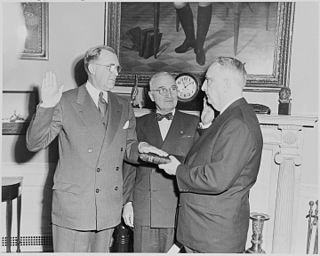A Quote by John McDonnell
To be effective in tackling poverty wages, a living wage has to be mandatory and basic trade union rights should be restored so workers can protect themselves from exploitative employers.
Related Quotes
The whole time I was a union leader, we had to put up with John Howard and Tony Abbott attacking workers' conditions. I'm proud of being a moderate trade union official, working co-operatively between employees and employers. I'm interested in better wages for workers, better safety, job security, and, profitable companies, because I understand that if you get co-operation in the workplace, everyone wins.
If a market exists for low-paid work, then we should think about how we can make this type of work more attractive by providing government assistance. Of course, the wage-earner must be able to live off of his wages. We will not allow poverty wages or dumping wages. But the wage earner can receive a combined wage that includes both his actual wages and a government subsidy.
Union membership is not the sole guarantor of job security and a living wage, but nonunion factory workers do not enjoy the same protections as union workers. They're subject to exploitation, underpayment and lower standards of workplace safety - which is also often the case for manufacturing workers outside the United States.
The competitive pressure to produce, buy, and sell to our global multi-national companies is so intense that contractors in supply chains are motivated to pay low wages, intensify exploitative conditions, keep workers fearful with insecure work contracts, or simply sack workers who have formed a union to fight back.
Taking the politics out of setting the minimum wage provides fairness for workers and predictability for businesses. This legislation will also protect the most vulnerable workers and level the playing field for employers who play by the rules. These are the right steps to take; they will make Ontario a better place to work and run a business.
It seems to me both moral and practical that in the richest in nation in the world that someone working full time shouldn't live in poverty. And studies over the last 20 years in states where we have seen these minimum wage increases show there's no discernible impact on employment growth. In fact, what it does is line low-wage workers' pockets with higher wages.
In my Inaugural I laid down the simple proposition that nobody is going to starve in this country. It seems to me to be equally plain that no business which depends for existence on paying less than living wages to its workers has any right to continue in this country. By "business" I mean the whole of commerce as well as the whole of industry; by workers I mean all workers, the white collar class as well as the men in overalls; and by living wages I mean more than a bare subsistence level - I mean the wages of decent living.
We should strengthen our immigration laws to prevent the importation of foreign wages and working conditions. We should make it illegal for employers to lay off Americans and then fill their jobs by bringing in workers from overseas. Any U.S. employer who wishes to hire from abroad - even for temporary jobs - should have to recruit U.S. workers first. And we should end the unskilled immigration that competes with young Americans just entering the job market.

































